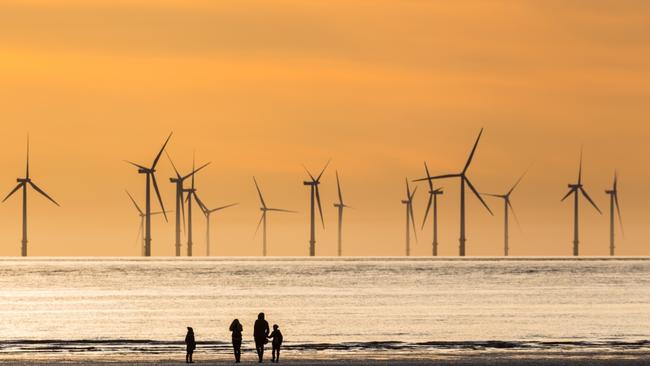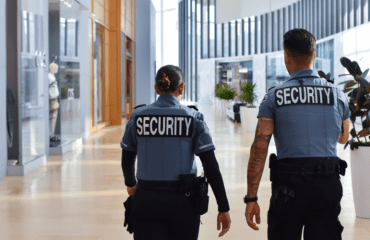The rapid expansion of energy projects worldwide, particularly in remote and harsh environments, has increased the need for robust security measures. Energy projects ensures that valuable infrastructure and resources are protected from potential risks, including theft, vandalism, and environmental hazards. In this blog, we will explore best practices for securing energy projects and protecting critical infrastructure.
Alpine Protection Services
Alpine Protection Services offers customized security services tailored to meet the specific needs of residential, commercial, and industrial clients. Their team of highly trained professionals provides a wide range of services, including on-site security personnel, mobile patrols, and advanced surveillance systems. Whether it’s protecting large construction sites, retail businesses, or private properties, Alpine Protection Services focuses on proactive measures to deter threats and ensure safety. With a commitment to delivering top-tier security, they provide peace of mind by safeguarding valuable assets and maintaining a secure environment for all clients.
Understanding the Importance of Energy Projects Security
Energy projects, whether focused on renewable resources like wind and solar or traditional energy sources like oil and gas, represent significant investments. These projects often span vast areas and are situated in remote locations, making them vulnerable to a wide range of threats. Ensuring proper energy projects security is crucial to prevent disruptions in production, damage to expensive equipment, and safety hazards to workers. Energy projects involve more than just physical barriers or guards; it encompasses an inclusive strategy that includes monitoring systems, access control, cybersecurity, and emergency preparedness. By adopting the right security measures, energy companies can minimize risks and ensure the continuity of their operations.
Monitoring and Maintenance of Security Systems
Once energy projects measures have been implemented, it is essential to regularly monitor and maintain these systems to ensure they are functioning as intended. This includes routine inspections of physical barriers, testing of surveillance equipment, and updates to cybersecurity protocols. Proactive monitoring and maintenance can help detect potential vulnerabilities before they become critical issues. In addition, energy projects should leverage technology such as drones and advanced monitoring tools to keep a close eye on project sites, especially in remote or hard-to-reach locations. These tools can provide real-time data on site conditions, allowing security teams to respond swiftly to any emerging threats.
The Growing Importance of Energy Projects
As energy projects expand globally, the need for reliable security has never been more critical. Whether it’s solar farms, wind power plants, or traditional energy sites, these infrastructures face numerous threats, from vandalism to cyberattacks. Energy projects play a key role in ensuring uninterrupted energy production and safeguarding assets. Companies must adapt to the evolving risks to maintain smooth operations.
Identifying Vulnerabilities in Energy Projects
The first step in enhancing energy projects security is identifying potential vulnerabilities. Each energy project is unique, and its location, infrastructure, and the value of assets determine the specific risks. For example, projects in remote areas may face greater challenges in preventing unauthorized access, while more technologically advanced facilities are at higher risk of cyberattacks. Tailoring security measures to address these vulnerabilities is essential for long-term success.
Physical Barriers and On-Site Security
Physical security measures, such as fencing, gates, and surveillance systems, are fundamental to energy projects. By installing visible barriers and employing trained on-site security personnel, companies can deter intrusions and respond quickly to any potential threats. High-quality surveillance systems, integrated with alarms, ensure continuous monitoring of the site. These measures form the foundation of protecting physical infrastructure.
Leveraging Technology in Energy Projects Security
Technology plays a vital role in modern energy projects. Advanced solutions such as drones, motion sensors, and real-time surveillance systems provide companies with the ability to monitor remote areas effectively. Integrating artificial intelligence (AI) and machine learning helps security teams detect anomalies and respond to potential breaches quickly. Utilizing these technologies not only strengthens security but also enhances operational efficiency.
Protecting Digital Assets
In today’s interconnected world, cybersecurity is a critical component of energy projects. As energy infrastructure becomes more digitized, protecting sensitive data and control systems from cyber threats is vital. Implementing strong firewalls, encryption, and regularly updating software can protect against hacking attempts. In addition, training employees on cybersecurity best practices helps prevent internal vulnerabilities, ensuring that both physical and digital assets are secure.
Regular Maintenance and Monitoring of Security Systems
To maintain effective energy projects security, regular monitoring and maintenance of security systems are crucial. Routine checks of physical barriers, surveillance systems, and cybersecurity protocols ensure that everything operates as intended. Proactive maintenance helps identify and resolve vulnerabilities before they escalate, allowing for a swift response to potential threats. Consistent monitoring helps keep energy projects safe and secure over the long term.
Emergency Response Planning for Energy Projects
An inclusive emergency response plan is a key element of energy projects. Natural disasters, security breaches, or other unforeseen events can disrupt operations and put infrastructure at risk. By developing a clear emergency response plan, including evacuation procedures, communication protocols, and emergency contact lists, companies can minimize damage and protect their personnel. Regular drills and employee training ensure that everyone is prepared to act swiftly in an emergency situation, making the site safer for all involved.
Managing Site Entry
Effective access control is essential for energy projects, as it limits who can enter critical areas of the project site. Using advanced systems like biometric scanners, keycards, and PIN codes ensures that only authorized personnel gain access to sensitive locations. Alongside electronic systems, establishing clear visitor management protocols is equally important. Monitoring who enters and exits the site through these access control methods reduces the risk of theft, vandalism, and sabotage, keeping the project safe from unauthorized intrusions.
Conclusion
In today’s complex and interconnected world, energy projects security plays a critical role in safeguarding the infrastructure, equipment, and personnel involved in these valuable operations. From physical security measures and cybersecurity protocols to access control and emergency response plans, there are many facets to consider when developing an inclusive security strategy. By following best practices for energy projects, companies can ensure that their projects run smoothly and safely, minimizing risks and maximizing operational efficiency. Investing in a solid security framework is not just about protecting assets; it is about securing the future of energy production.



